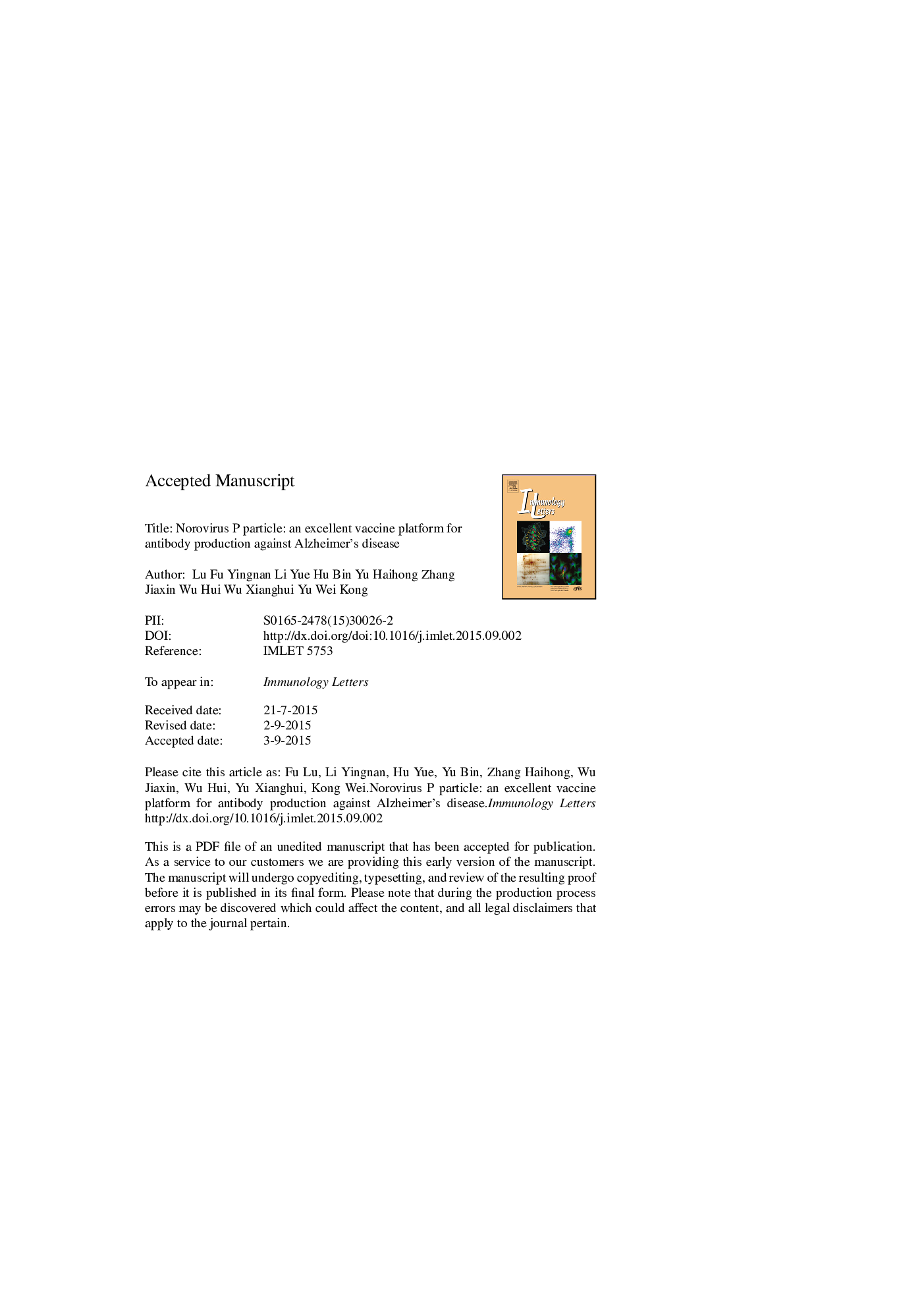| Article ID | Journal | Published Year | Pages | File Type |
|---|---|---|---|---|
| 6117071 | Immunology Letters | 2015 | 26 Pages |
Abstract
Active vaccination against amyloid β (Aβ42) is considered a potential therapeutic approach for Alzheimer's disease (AD). However, immunization with synthetic human Aβ1-42 has resulted in meningoencephalitis in 6% of patients and generated only low-titer anti-Aβ42 antibodies. In order to develop a safe and effective vaccine against Alzheimer's disease, the Aβ1-6 peptide was used as the novel immunogen and Norovirus P particles as the vaccine platform in this study. By inserting and presenting Aβ1-6 on the outermost surface of the P particle, we showed that the chimeric P particle-based AD protein vaccine could elicit a strong immune response, inducing highly specific antibody titers against Aβ42 without causing T-cell activation. Furthermore, antibodies induced by the AD protein vaccines were demonstrated to be effective at the cellular level. In addition, we also compared the immunogenicity of the chimeric P particles with different insertional loci in the loop structure domain and demonstrated that insertion of the antigen into all three loops of the P particle at the same time could significantly improve immune responses to the vaccine. In conclusion, the Norovirus P particle is an excellent vaccine platform for stimulating Aβ42 antibody production, and chimeric P particles may be developed as an effective therapy for AD.
Keywords
Related Topics
Life Sciences
Immunology and Microbiology
Immunology
Authors
Lu Fu, Yingnan Li, Yue Hu, Bin Yu, Haihong Zhang, Jiaxin Wu, Hui Wu, Xianghui Yu, Wei Kong,
